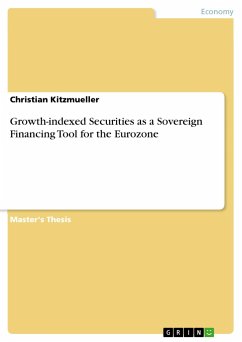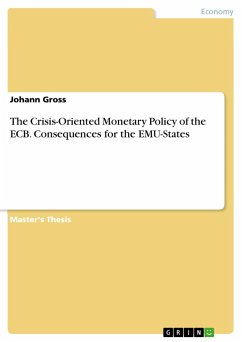Master's Thesis from the year 2016 in the subject Economics - Finance, grade: 1, Donau-Universität Krems (International Financial Environment), course: MSc Finance, language: English, abstract: The euro area members have delegated monetary policy to a communitarian central bank, while fiscal and macroeconomic policy strictly remain under national responsibility. In a currency union, the governments issue debt in a currency whose supply they don't control. As a result, vulnerability to changing market sentiment and the inability to use counter-cyclical fiscal policies for economic stabilization tends to produce more pronounced booms and busts.GDP-indexed securities have been proposed in the academic literature as an instrument to stabilize sovereign debt dynamics across the Eurozone. This Master's Thesis evaluates whether the introduction of GDP-indexed sovereign bonds would provide substantial stabilization to the Eurozone in the event of a macroeconomic shock. The results confirm that GDP-indexed sovereign debt does have substantial stabilizing effects on the debt-to-GDP ratios of its issuers. However, the stabilizing capacity of GDP-indexed bonds seems insufficient to protect the Eurozone's most vulnerable members from liquidity crises. Nevertheless, GDP-indexed instruments may well function as a contributor to the stability of the Eurozone, along with existing instruments, and potentially with a still-to-be-introduced EMU-wide risk-sharing mechanism.








